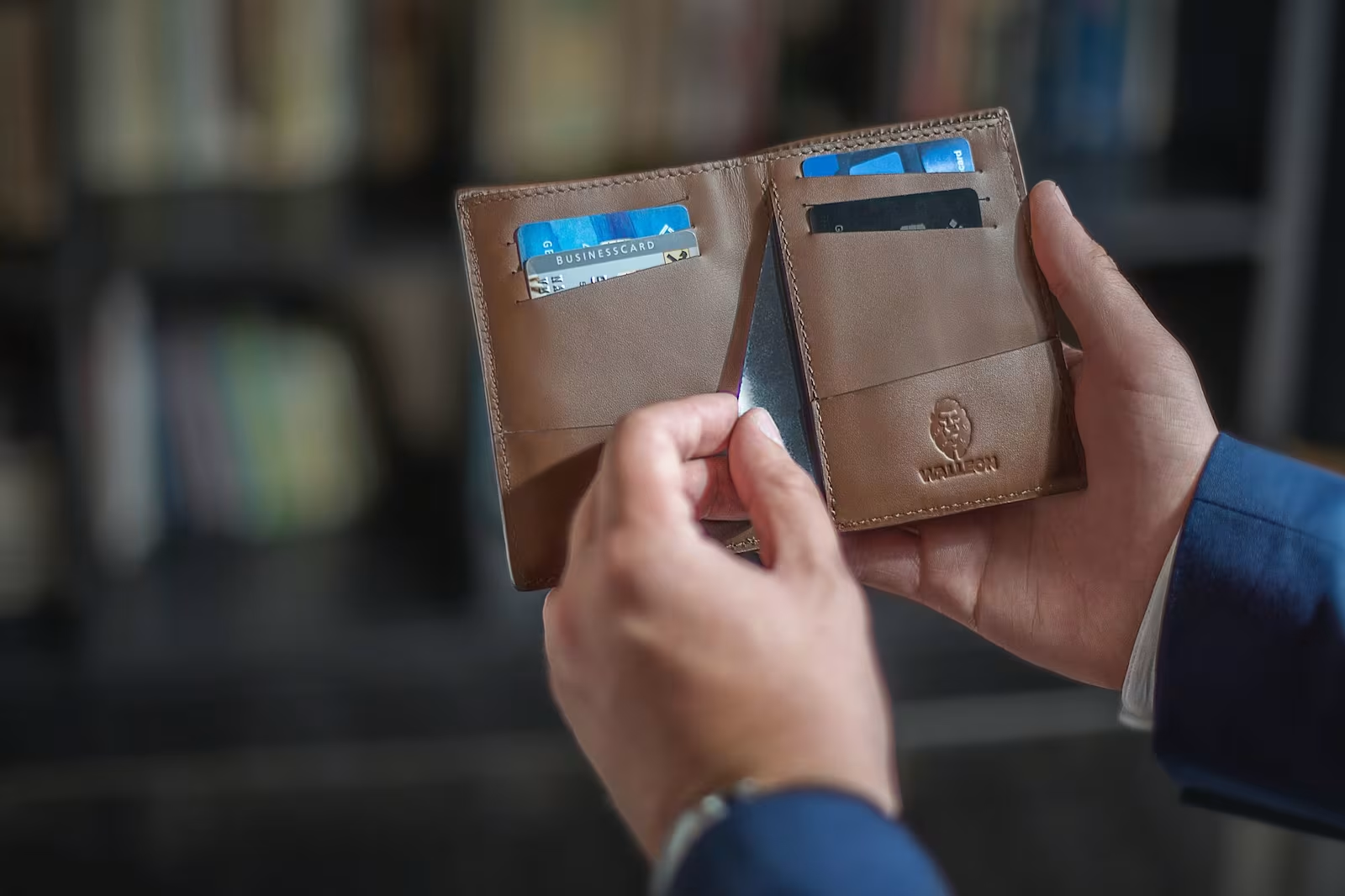Alternatives to traditional banking in 2023: what are the options?
Today, banking is a broad spectrum, with many alternatives to the traditional high-street model, promising more transparency, more flexibility, and lower fees. But navigating this increasingly crowded space can sometimes be a little tricky, especially when each new challenger bank boasts a different and allegedly better offering.
That’s why we’ve put together this article, exploring the state of alternative banking today. We’ll look first at the basics, and then the different options available. After that, we’ll look at the possible pros and cons of embracing these alternatives. As well as suggesting how you can make the best banking decision for you.
Once you’ve finished this article, we hope you feel more knowledgeable, and empowered to explore the alternatives to traditional banking for yourself.
WorldRemit Content Team
• 5 mins read • Updated
What is alternative banking?
Put simply, alternative banking is a broad term for a range of finance companies – often referred to as fintech companies or fintech banks – that offer a more flexible approach.
Some alternative options are specialist companies or banks, usually with a core focus. Most exist digitally, without physical branches, and work to deliver a strong tech offering, with an excellent in-app experience. This often allows users to handle their finances exclusively through an app, with instant access to account details and tools such as spending breakdowns, and saving pots.
Alternative banking can also provide more agile solutions for borrowing, with smaller, shorter-term loans available – often at better rates.
What types of alternative banking are there?
Let’s take a look at the different types of alternative banking, shaking up the sector and providing new financial freedoms.
Fintech banks and companies
‘Fintech’ is an abbreviation of ‘financial technology’. Today, many fintech banks and companies are becoming increasingly popular. This is largely because of the new financial freedoms and agility they offer customers – such as real-time spending insights, breakdowns, and pots.
Traditional banks do, of course, provide online and in-app banking. But fintech companies are free from the expense of maintaining physical branches, and this allows them to invest more in providing innovative banking services.
Peer-to-peer borrowing
Peer-to-peer borrowing is a relatively recent form of borrowing between a group of individuals or ‘peers’. It doesn’t involve traditional banks, and if you wish to borrow money this way, platforms exist to connect borrowers with lenders.
It works like this: say you wanted to borrow £5000, you could borrow £1,000 from five different peers. This gives borrowers more flexible access to credit, while peers see a return on their loan, thanks to interest.
Credit unions
A credit union is similar to a bank, in that it’s essentially a savings and loans provider. However, the major difference is that credit unions are not-for-profit, and are usually community organisations – based either on location or profession.
Many credit unions now offer online products and services, and deliver the same FSCS (Financial Services Compensation Scheme) protection as traditional banks. However, some credit unions will limit the amount of savings a customer can keep in their account. If you’d like to learn more about credit unions, you can find your nearest one here.
Community banks
A community bank is typically a smaller bank that serves customers within a particular geographic area.
While community banks possess fewer financial assets, and often promise fewer services than bigger traditional banks, they do offer a more personal approach to banking. And often with better interest rates on savings.
Prepaid debit cards
A prepaid debit card is really as simple as it sounds. Rather than using a traditional bank account and debit card, you simply top up a prepaid debit card. This way, you can avoid spending more than the amount in your account, and not slip unwittingly into an overdraft – which can come with hefty fees.
Prepaid debit cards are also useful for holidaymakers looking to stay within a budget, and many offer competitive foreign exchange rates.
Payment services
‘Payment services’ is a broad term for a range of services that allow people to send and receive money, nationally or internationally. Some of these require a bank account. However, there are also ways of sending money without one. For more information on this subject, take a look at our blog, 3 ways to send money to someone who doesn’t have a bank account.
And, of course, WorldRemit also allows users to send money – you’ll enjoy low fees, zero confusion, and a fast, reliable service. If you’re looking to send money, why not sign up today?
Alternative banking: what are the pros and cons?
There’s no denying that alternative banking is growing in popularity, with new digital freedoms attracting more loyal users. But are people today simply following the crowd? Let’s take a closer look at the pros and potential cons of alternative banking.
Alternative banking: the pros
Alternative banking services are often favoured for these reasons:
More convenience and transparency
Better in-app or online user experience
Better financial features and tools
Faster processing and transfer of funds
Lower fees, and less barriers to credit
Alternative banking: the cons
Although alternative banking services provide an agile user experience, and do usually provide the same FSCS level of savings protection (up to £85,000), they’re occasionally criticised for these reasons:
No physical establishments, and no physical contact with customers
Slower customer services teams
A dependency on their online offering
Lesser brand reputation and trust
How can I choose the right banking option for me?
Choosing the right banking option is an important decision, and can have far-reaching effects not only on your money, but also your day-to-day life. We recommend weighing up your options carefully, and following these simple steps:
Step 1: Do your homework
Spend some time researching and understanding the financial landscape, and all the different services available.
Step 2: Consider your location and profession
These two factors could impact whether you consider banking with a community-based organisation.
Step 3: Trial different solutions
Downloading a banking or fintech app, and then creating an account doesn’t mean you need to bank, or use that particular product for life. Explore the app, get a feel for its offering and tools, and if it works: fantastic. If not, you can always try another alternative or more traditional option.
Alternative banking: where are we now?
As we’ve learnt, alternative banking is a large space, with many different services available. Each one usually promising a different offering, and occasionally tailored to a particular group or audience.
If you’re looking to send money to loved ones back home, why not sign up to WorldRemit today, and join our millions of customers worldwide? You’ll enjoy fast and secure transfers with low fees.
And if you’d like to learn more about alternative banking, head over to our blog. You’ll find a selection of helpful and informative insights put together especially for people living and working abroad.
Alternative banking: FAQs
Where can I keep my money instead of a bank?
You can choose to keep money in a credit union, or community bank. Alternatively, you could invest it – however, this comes with its own risks that should be properly considered.
Can I live without a bank?
It’s possible. Although, living without a bank will likely make your life more difficult. That said, credit unions and community banks offer saving and borrowing services. And a prepaid debit card – from the Post Office, for instance – can allow you to bypass banks.
Is it safe to use alternative banking options?
Yes, it’s safe. But we recommend you always research a bank thoroughly before choosing it, taking into account any user reviews. Nearly all fintech banks today come with FSCS protection – if you find one that doesn’t, that’s a good reason not to choose it.
Disclaimer: The contents of this blog post does not constitute legal or financial advice and is provided for general information purposes only. If you require specific legal and / or financial advice you should contact a specialist lawyer or financial advisor. Information true at time of publishing.
Back to homeWorldRemit allows customers to stay connected and support their loved ones. Our Content Team plays an integral part in that. We celebrate the global community and help you to achieve your ambitions.

